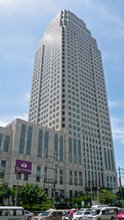The Bank of Thailand yesterday cut interest rates by half a percentage point as the economy continues to slow due to weak investor and consumer confidence. The move by the central bank's Monetary Policy Committee (MPC), the fourth reduction this year, brought its one-day repurchase rate down to 3.5%.
But the markets mostly ignored the decision as it had been widely anticipated. The Stock Exchange of Thailand index fell 0.21% while bond yields rose slightly as investors considered comments by the central bank that further rate cuts should not be taken as a given.
Suchada Kirakul, a central bank assistant governor, indicated that the monetary stance had shifted from a bias toward easing to a more neutral position.
''The current interest rate is suitable. We would rather wait to assess new incoming data before deciding on the future trend,'' she said.
The MPC's statement offered similar comments. ''The current rate was deemed suitable in ensuring the inflation target and supporting economic expansion,'' the statement said.
''Overall domestic demand continued to soften due to a slowdown in private expenditure and fragile confidence. Although the government accelerated spending, government spending has yet to achieve the target.''
The MPC noted that while exports had continued to perform well, a slowdown was a risk in line with the global economy.
Ms Suchada said weak domestic demand in turn would help keep inflation in check, despite recent increases in oil prices. Dubai oil prices have risen to $66 per barrel from $63 at the last MPC meeting in April, but remained under the forecast ceiling of $68.
''The oil price has been pushed up by temporary factors and the fact that it is now the [US] driving season. It hasn't differed much, however, from the second quarter of last year,'' she said.
Weak private investment has been the major reason for the MPC's aggressive rate cuts this year, Ms Suchada said.
''Private investment is key to an economic recovery. The interest rate cut will be one positive factor to help improve confidence,'' she said.
Short-term interest rates have fallen by 1.5 percentage points from 5% at the beginning of the year, as domestic demand has remained weak and inflation low.
Ms Suchada said lower interest rates would help export-oriented firms. At the same time, the political climate remained the key risk for companies focused on the domestic market.
According to the central bank, private investment contracted in the first quarter. MPC members in their meeting yesterday also reviewed April economic data, which are due to be released to the public next week. In any case, analysts expect short-term policy rates to fall by at least another quarter or half point by year's end.
Ms Suchada said the impact of eased monetary policy on the banking system would be more quickly felt than rising rates.
''But it will take some time to get people to spend due to poor confidence. There will be some impact on depositors [from the rate cuts], but new financial products in the banking system should help to offset the impact,'' she said.
Real one-year fixed deposit rates after inflation now stood at 0.74%.
Ms Suchada added that the central bank was not concerned that lower rates would lead to capital outflows, given ample liquidity in the financial system.Policy interest rates in Thailand now stand on par with those in Malaysia at 3.5%, but are higher than Taiwan's 2.9% and lower than Korea's 4.5%, she added.
Khunying Jada Wattanasiritham, a director of Siam Commercial Bank, agreed that private investment was the key factor affecting the economy.
Business confidence has fallen markedly in recent months due to political uncertainties and policies such as efforts to tighten the Foreign Business Act.
''Exports have been strong. [Government] budget disbursements lagged behind targets, but the reason _ that prudent procedures are needed _ is in the right direction,'' she said.
''There is only private investment left that remains uncertain. In fact, the business sector should no longer be reluctant to invest if they are confident about the future.''
Gary Newman, country officer for Citi in Thailand, said the 50-basis-point cut raised an interesting question as to how ''deep'' the central bank was willing to push rates this year.
''They seem reasonably confident of a downturn in core inflation,'' Mr Newman said, adding that the move was unlikely to have a significant impact on the baht.
''The currency isn't strengthening due to yield differentials. ... The baht will appreciate due to structural capital flows.''
Steady trade and current-account surpluses and a weakening dollar have continued to pressure the baht this year even though investment sentiment remains weak due to political uncertainties.

No comments:
Post a Comment